When to use seamless steel pipe
Update:2024-03-01 View(s):911 Keywords :seamless steel pipe, industrial seamless steel pipe, use seamless steel pipe
Seamless steel pipe is a common material in the steel industry that offers many advantages, such as high strength, corrosion resistance, and excellent mechanical properties. However, not all situations are suitable for seamless steel pipes. Before choosing to use seamless steel pipes, we need to carefully consider some factors.
1. Operating temperature: Seamless steel pipe is suitable for applications in high-temperature environments. High temperatures can cause some materials to expand and contract, so you need to choose materials that can withstand high temperatures. Due to its special manufacturing process, seamless steel pipes can maintain good strength and stability under high temperatures, so using seamless steel pipes under high-temperature conditions is a good choice.
2. Pressure requirements: Seamless steel pipes are usually used in situations with high pressure, such as the oil, natural gas, and chemical industries. Compared with welded steel pipes, seamless steel pipes are stronger and can withstand greater pressure. Therefore, seamless steel pipes are a more reliable choice where high pressures are required.
3. Corrosion resistance requirements: In some corrosive environments, such as seawater, chemicals, etc., traditional steel pipes are easily corroded, thus shortening their service life. Due to its jointless characteristics, seamless steel pipes avoid the problem of corrosion at joints. Therefore, the use of seamless steel pipes in corrosive environments can improve the corrosion resistance of the material.
4. Structural requirements: Seamless steel pipes are usually used in situations that bear complex structural forces, such as bridges, buildings, and mechanical equipment. Since seamless steel pipes have excellent mechanical properties and can withstand large tensile, compressive, and bending forces, seamless steel pipes are a better choice when they need to withstand complex structural forces.
In addition to the above factors, some other alternative perspectives can be considered. For example, cost factors are an important consideration. Compared with welded steel pipes, the manufacturing process of seamless steel pipes is more complex and the cost is higher. Therefore, when costs are limited, we need to carefully weigh the necessity of using seamless steel pipes.
In addition, some special application scenarios need to be considered. For example, in some applications with high weight requirements, such as aerospace and automobile manufacturing, lightweight alloy materials or composite materials can be used to replace seamless steel pipes. These materials have high strength and lightweight characteristics and can meet special requirements.
In general, choosing to use seamless steel pipes requires comprehensive consideration of multiple factors, including operating temperature, pressure requirements, corrosion resistance requirements, and structural requirements. At the same time, you can also think from other perspectives such as cost and special application scenarios. Through comprehensive analysis, we can find the most suitable material selection to ensure the safety, reliability, and economy of the project.
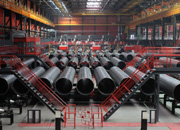 Threeway Steel is known as a professional supplier engaged in manufacturing and distributing a wide range of steel pipe, and our headquarter located the central part of China – Hunan and six associated factories throughout China.
Threeway Steel is known as a professional supplier engaged in manufacturing and distributing a wide range of steel pipe, and our headquarter located the central part of China – Hunan and six associated factories throughout China.
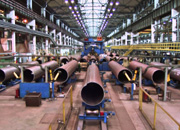 Threeway Steel is known as a professional supplier engaged in designing, manufacturing and distribution of a wide range of steel products with the headquarter located the central part of China – Hunan and six associated factories throughout China.
Threeway Steel is known as a professional supplier engaged in designing, manufacturing and distribution of a wide range of steel products with the headquarter located the central part of China – Hunan and six associated factories throughout China.
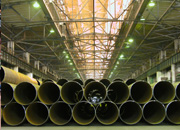 Threeway Steel is known as a professional supplier engaged in designing, manufacturing and distribution of a wide range of steel products with the headquarter located the central part of China – Hunan and six associated factories throughout China.
Threeway Steel is known as a professional supplier engaged in designing, manufacturing and distribution of a wide range of steel products with the headquarter located the central part of China – Hunan and six associated factories throughout China.
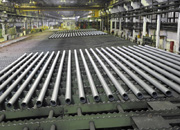 Threeway Steel is known as a professional supplier engaged in designing, manufacturing and distribution of a wide range of steel products with the headquarter located the central part of China – Hunan and six associated factories throughout China.
Threeway Steel is known as a professional supplier engaged in designing, manufacturing and distribution of a wide range of steel products with the headquarter located the central part of China – Hunan and six associated factories throughout China.
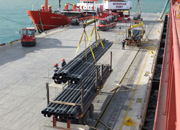 Threeway Steel is known as a professional supplier engaged in designing, manufacturing and distribution of a wide range of steel products with the headquarter located the central part of China – Hunan and six associated factories throughout China.
Threeway Steel is known as a professional supplier engaged in designing, manufacturing and distribution of a wide range of steel products with the headquarter located the central part of China – Hunan and six associated factories throughout China.

